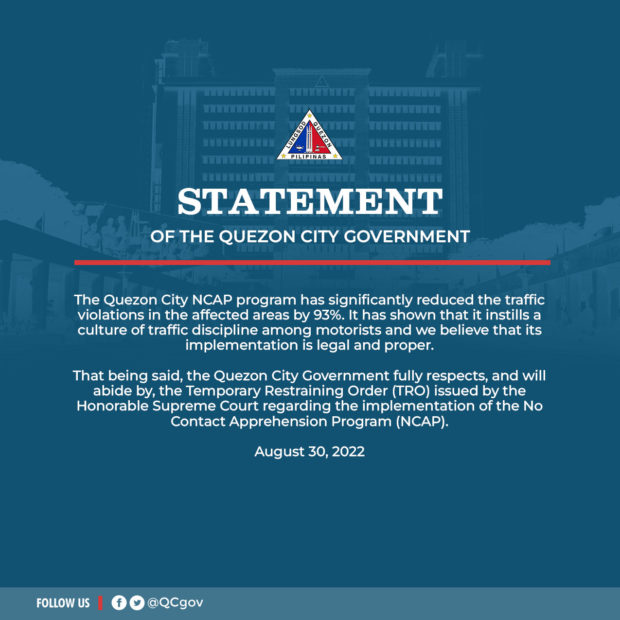
MANILA, Philippines – Both the Metro Manila Development Authority (MMDA) and Quezon City government, in separate statements on Tuesday, vowed to abide by the Temporary Restraining Order (TRO) issued by the Supreme Court (SC) that stopped the implementation of the no contact apprehension program (NCAP).
While the MMDA initially said it would not follow the order stopping the policy, the agency backtracked and later said it would uphold the TRO and no longer implement the NCAP.
“The Metro Manila Development Authority (MMDA) will no longer implement the No Contact Apprehension Policy [NCAP] in light of the statement of Supreme Court spokesperson Brian Keith Hosaka that the agency is covered by the SC’s temporary restraining order on the implementation of NCAP,” the MMDA’s statement read.
The Quezon City government has also announced that it will abide by the TRO.
“The Quezon City government fully respects, and will abide by, the Temporary Restraining Order [TRO] issued by the Honorable Supreme Court regarding the implementation of the No Contact Apprehension Program [NCAP],” they said through a different statement.
However, the local government unit asserted the NCAP’s legality in the statement, saying that the policy “significantly reduced the traffic violations in the affected areas by 93%.”
“It has shown that it instills a culture of traffic discipline among motorists and we believe that its implementation is legal and proper,” said the Quezon City Government.
The SC ruled on Tuesday that the NCAP was not to be implemented until further orders from the court.
RELATED STORY:
SC temporarily stops no contact apprehension program
LTO urges LGUs to suspend ‘no contact apprehension policy’

